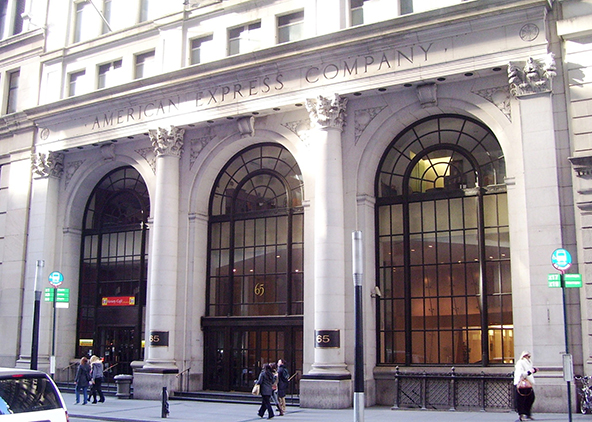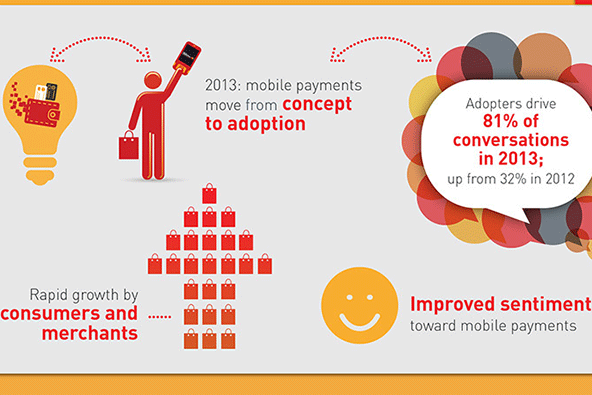Everything You Need to Know about American Express’ Merchant Pricing

One thing we’ve often had hard time explaining to our existing and prospective clients is that we have no control over American Express’ pricing. As we have not explicitly stated AmEx’s rates on our website, merchants would often think either that we are hiding them or that we do not provide AmEx acceptance. The reality is altogether different. Yes, we do provide AmEx processing services, however, while we do set the rates for Visa, MasterCard and Discover, AmEx does it on its own. This is the case not just with UniBul Merchant Services, but with all other processors.
What happens is that, once your merchant account is set up, AmEx will send you a letter listing the terms and conditions of your contract with them, including pricing details. Now, AmEx’s pricing is not arbitrary, but it’s determined by your business type and is completely independent of your choice of processing company. Moreover, your AmEx account is transferrable and remains active even if you close down the merchant account with your processor.
American Express Merchant Pricing
Once your merchant account is approved, and provided you have elected to accept AmEx cards, your processor will send your information to American Express (alternatively, you may be asked to fill out a separate AmEx agreement). Your AmEx pricing will be determined by your MCC code and will fall into one of the following categories:
|
Industry |
Discount Rate |
| Fast Food Restaurant | 3.50% |
| Independent Gas Stations | 3.25% |
| Lodging | 3.50% |
| Mail Order and Internet | 3.50% |
| Office-based Healthcare | 2.55% (only for MCC 8011, 8021) |
| Other Transportation | 3.50% |
| Restaurant | 3.50% + $0.05 |
| B2B | 2.89% + $0.15 |
| Retail | 2.89% + $0.10 |
| Services, Wholesale and All Other | 2.89% + $0.15 |
| Supermarket | 2.30% |
| Telecommunications | 3.50% |
| Tuition | 2.40% |
Your processor may and probably will add a surcharge in the form of a percentage and / or per-transaction fee.
Other AmEx Fees
In addition to the discount rates listed above, American Express may charge the following fees, under certain circumstances:
- Gateway fee — $0.001 per transaction. If your processor routes authorization requests through the Visa or MasterCard processing gateways, AmEx will pass the associated fees to you, after a certain threshold is met.
- Card-not-present charge — 0.30 percent of the transaction amount. This fee is applied to any retail or restaurant charge (see table above), for which the card was not presented at the point of sale (e.g. charges by mail, telephone, fax or the internet).
- Voice authorization fee — $0.65 per call. Just as with Visa and MasterCard transactions, AmEx voice authorizations may be attempted whenever your point-of-sale (POS) terminal cannot connect to American Express’ electronic authorization system.
- Check processing fee — $1.50 per check. This fee is assessed for any check issued by AmEx.
- Paper statement fee — $4.95 per statement. Electronic statements are free.
- Paper submission rate — varies. Transactions are typically submitted electronically, however merchants like taxis and limousine services, street fairs, etc. are allowed to submit transactions on paper, but are charged a higher discount rate.
- Technical specifications non-compliance fee — $0.10 – $1.00 per transaction. This fee is applied to transactions that do not comply with American Express’ technical specifications.
- Monthly gross pay fee — 0.03 percent of the transaction amount. This fee is charged to merchants participating in the Monthly Gross Pay Option when the transaction amount exceeds a pre-determined threshold amount.
- Data incident management fee — up to $100,000 per data incident. This fee is charged to merchants who have suffered a data breach.
- Data security non-validation fee — $50,000 – $400,000. Merchants have reporting obligations under AmEx’s Data Security Operating Policy, depending on their transaction volumes.
- Excessive dispute fee — $5 per disputed transaction if the merchant is in the Immediate Chargeback Program or $15 if it is not. This fee is charged if in any three consecutive months a merchant’s monthly ratio of disputed to total transactions (excluding credits) exceeds three percent, and then in any subsequent month when the merchant exceeds this ratio again. The fee is only applied to the disputed transactions in excess of this ratio.
So there you have it. At present, these are all the possible fees you may be charged by American Express.
The Takeaway
Compared to the other major card brands, American Express transactions are the most expensive ones to process and that’s just the way it is. It is going to be your choice whether to accept their cards or not, however, as I always tell merchants, whatever your decision, it doesn’t hurt to open up an AmEx account, just in case. There is no downside, as you get charged no monthly fees and if you do decide at some future point that AmEx acceptance may be worth it, after all, you can start doing it immediately.
Image credit: Wikimedia Commons.



American Express are far and away the most expensive credit card brand to accept, which is why we don’t take their cards at our store. I wish we did, but it would cost us 50% or more, compared to Visa, MasterCard and Discover.
I know that Square charges the same percentage for all cards, but the problem there is that they’ve done that by increasing the rates for the other three brands to the level of AmEx, so that’s not an option.
Beth,
Yes, you are correct, Square’s rates are high for traditional merchants, but they are appealing to smaller ones. Also, Square hasn’t raised the rates of the other three brands quite as high as AmEx’s and is probably losing money on its American Express transactions.
I think American Express’ rationale for charging higher interchange fees than their competitors is that they charge no processing fees, which is the case for Visa and MasterCard transactions. However, that is not true for Discover, which charges interchange fees that are only slightly higher than Visa’a and MasterCard’s, but much lower than AmEx’s. It’s amazing to me how merchants have put up with that for so long.
Greg,
Actually there was a merchant revolt against American Express back in 1991. Back then AmEx was able to negotiate its way out of trouble and gradually reduced its merchant fees.
AmEx has had a much easier time lately, compared to the other issuers. They’ve been completely unaffected by the debit interchange limit, simply because they don’t issue debit cards. As a result, they haven’t been forced to introduce charges that would annoy their customers, which BofA and the other Visa and MasterCard issuers had to do. And yes, they keep charging much higher interchange fees on credit card transactions.
I would advise readers to keep checking AmEx’s website for the latest pricing, because it keeps changing. Your review outlines the present picture, but it will be outdated a few months from now. Of course, you can (and probably will) revisit the topic when needed.
You are correct, American Express does change its pricing at least once annually and we will try to keep on top of it.
You’re right, AmEx is more expensive than the other cards, but you need to have it all the same. I mean, if a customer is ready to make a payment and pulls out an AmEx card, what are you going to tell him, “I don’t take American Express?” I guess you can, but it doesn’t look good. And in any case, if you sell big-ticket items, you just have to take whatever payment type you are offered.
Will,
I agree with you, you should have American Express enabled in your merchant account just in case; there is no down side to it.
I don’t think you’ll like my idea, but here it goes anyway. I think that AmEx should be made to lower its interchange rates. It is just not right to let them get away with charging so much more than anyone else, without providing any additional benefits for it.
I remember that there was a merchant backlash against American Express some years ago and if memory serves, the merchants did get some concessions, but there is more that needs to be done here.
No, I don’t think regulating AmEx’s interchange fees is a good idea. I would’ve thought that the Durbin disaster would’ve convinced people not to try such a thing again for at least a few years, until they forget the lessons.
I pay 3.5% for AmEx transactions at my restaurant and think that this is an outrageously high rate. It is more than twice the rate I pay for Visa and MasterCard transactions, not to mention debit cards. I know that many restaurants don’t accept American Express, but I’ve kept it as a convenience for my customers. I may have to stop doing it, though.
One way I mitigate the Amex fees is that I charge my goods to my Plum Card and with timely pay I’m rebated 1.5%..robbing Peter to pay Paul but the net effect is cheaper. I can’t afford to refuse a sale.
And the vendors that don’t accept Amex, I charge to MC and receive a 1% rebate, but most do.
As a merchant I am tired of paying Amex 1/2 to 1/3 more than Visa MasterCard and having to wait 4 days to get paid, when Visa MasterCard will pay me next day. I think we should strike back against Amex. The next biggest shopping season is Back To School/College, which did $84 Billion last year, almost 20% of Christmas. Since about 48% do their shopping 1 month before school starts, I suggest all retailers do not take Amex starting Saturday August 3, 2013 through Sunday August 11, 2013.
Hello Eric,
Actually what you are proposing already happened back in 1991 when several restaurants in Boston took exception to AmEx’s high merchant fees and stopped accepting its cards altogether. Back then, American Express’ merchant fees averaged about 4 percent, compared to 1.2 percent for Visa and MasterCard. So if you could organize a large enough boycott, your strategy might work.